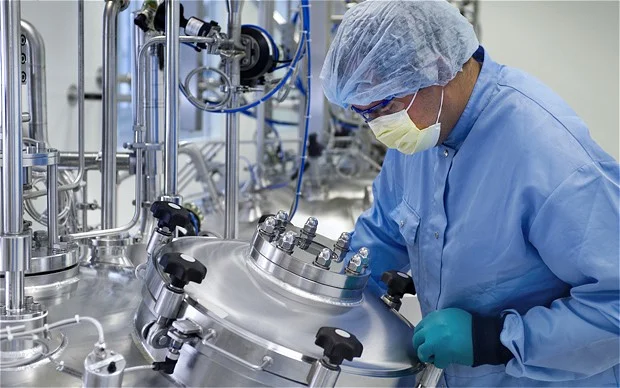In India, pharmaceutical industry has become one of the fastest-growing sectors driven by innovation, affordability and large scale production capacity. Pharma contract manufacturing is one of the leading contributors to this growth by helping brands to focus on marketing and distribution by offering quality manufacturing standards. Here we will provide you with everything you need to know about Contract Manufacturing in Pharma, its types, benefits and how it works.
What Is Contract Manufacturing in Pharma?
Pharmaceutical contract manufacturing refers to the process of a pharmaceutical company hiring a third party (a contract manufacturing organization) to manufacture its drugs. The benefit is that the pharmaceutical company is able to concentrate on its focus areas such as research and development while benefiting from the contract manufacturer’s expertise and capacity in manufacturing.
- Outsource manufacturing: A pharmaceutical company acquires a dedicated contract manufacturing company to manufacture its products.
- The advantages: This can provide an overall ability to efficiently scale, save costs, and gain flexibility or quickly enter the market by leveraging external resources and expertise.
- Contract Development and Manufacturing Organizations (CDMOs): this is sometimes a dedicated company that may provide a full suite of services including drug development and bulk manufacturing.
Why Contract Manufacturing Is Popular in India
India as a global hub for pharmaceutical production (mention stats briefly).
Key drivers:
- Lower production costs
- Skilled labor and advanced infrastructure
- Regulatory support (e.g., WHO-GMP, ISO-certified facilities)
- Access to a wide domestic and export market
How Does Pharma Contract Manufacturing Work?
Pharma contract manufacturing occurs when a pharmaceutical firm hires a third-party company (a contract manufacturing organization or CMO) to product its pharmaceuticals. A CMO is accountable for the manufacturing of the pharmaceuticals, which can involve raw material sourcing, formulations, packaging, labeling, as well as quality control as outlined by the client specification under their brand. This helps pharmaceutical companies focus on marketing or development while taking advantage of the CMO’s expertise and facilities.
- Product Concept & Formulation Discussion
- Quotation & Agreement Signing
- Raw Material Procurement
- Manufacturing & Quality Testing
- Packaging & Labeling
- Dispatch & Delivery
What are the Types of Contract Manufacturing Services?
There are several types of contract manufacturing services in pharma, some of which include the following:
Core manufacturing
API Manufacturing: The manufacturing of an active pharmaceutical ingredient provides the essential chemical entities which deliver a therapeutic response.
Finished Drug Product Manufacturing: The finished drug and includes all dosage forms, including tablets, capsules, and liquids created from the API.
Biologics Manufacturing: Manufacturing processes for complex drugs, such as vaccines, antibodies, and cell/gene therapy products.
Specialized and support services
Packaging and Labeling Services: Includes services in the preparation of the final drug product for distribution and to maintain compliance with regulatory requirements and for features such as serialization.
Formulation Development: Designing how the drug product and composition will be used.
Analytical Services: Includes Quality Control, stability testing, and method validations.
Regulatory Support: Assist with regulatory aspects and submission of materials.
Sterile and Lyophilization Manufacturing: Processes for products requiring aseptic processing or freeze-dried (lyophilized) products.

What are the Key Benefits of Contract Manufacturing for Pharma Companies
Here are some of the key benefits of contract manufacturing for pharma companies, some of which include the following:
- Cost-effective: Makes it possible to avoid significant capital expenditure on facilities, equipment, and personnel by utilizing the economies of scale by the contract manufacturer.
- Expertise: Benefits from advanced technology, specialized know-how and skilled personnel for production to quality control and regulatory compliance.
- Speed: Facilitates rapid new product development and commercialization by leveraging the existing capabilities and experience of the contract manufacturer, potentially quicker than building the capability in-house.
- Flexible and scalable: Provides an ability to quickly adjust production volume measures, from small clinical trial sizes to much larger commercial grades.
- Regulatory: Utilizes the contract manufacturer’s experience and certifications to remain compliant with stringent quality and regulatory standards and protections when entering into global markets.
How to Choose the Right Pharma Contract Manufacturer in India?
When choosing the right contract manufacturer in India, you should consider several factors such as:
- Regulatory compliance and certifications
- Manufacturing capacity and capabilities
- Quality assurance and control
- Reputation and experience
- Communication and transparency
- Cost and pricing
- Supply chain and logistics
Why Partner with Lifevision Healthcare?
There are several reasons to partner up with lifevision healthcare, some of which include the following:
- Trusted Expertise
- Certified Facilities
- Wide Product Range
- End-to-End Solutions
- Quality Assurance
- Transparency & Timeliness
Conclusion
To sum up everything that has been stated so far, the given information on the topic “What Is Contract Manufacturing in Pharma and How Does It Work” provides the states how a Contract Manufacturing in Pharma works, its types and key benefits. Choosing the right manufacturer is crucial for quality and effective products.
FAQs About Contract Manufacturing in Pharma
Question 1. What are the Regulatory Standards and Quality Compliance in India?
Answer. The regulatory standards and quality compliance include CDSCO, WHO-GMP and ISO standards to ensure safety and quality.
Question 2. What types of products can be manufactured under pharma contract manufacturing?
Answer. Under contract manufacturing, there are several types of products manufactured including tablets, capsules, syrups, ointments, nutraceuticals, herbal and derma products.
Question 3. What are the benefits of outsourcing pharmaceutical manufacturing?
Answer. The key benefits of outsourcing pharma manufacturing include save infrastructure costs, speed up time-to-market, reduce operational risks and ensure high quality products.
Question 4. How do I choose the right pharma contract manufacturer?
Answer. When choosing the right manufacturer you should consider several factors such as certifications (WHO-GMP, ISO), experience, product range, production capacity, transparency and client feedback.







 Call Us: 8062750200
Call Us: 8062750200 Contact Us
Contact Us